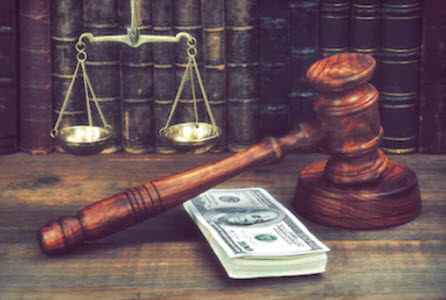What Happens If the Businesses That Owe Money to Your Business File for Bankruptcy?
Now that more than 200 people in Alabama have died from the novel coronavirus and the total number of confirmed COVID-19 cases in Alabama is more than 52,000, small business owners are in crisis mode. The federal government has designated many billions of dollars for loans, some of them forgivable, for small businesses, but accessing these funds is not as easy as it sounds. Even if you are able to benefit from the emergency economic stimulus for small businesses, the financial struggles for your business are far from over. The people and businesses who owe you money are facing financial hardships of their own, and some additional restrictions have been placed on creditors attempting to collect debts from borrowers affected economically by the COVID-19 pandemic. A wave of bankruptcy filings among individuals and businesses is likely on the horizon, and there is a chance that an entity that owes money to your business will file for bankruptcy. Creditors still have rights under bankruptcy laws; contact an Alabama bankruptcy lawyer to find out more.
It Depends on the Type of Bankruptcy
The belief that, once a person or business files for bankruptcy, creditors can no longer collect their debts from the bankrupt entity is a misconception. No matter what kind of bankruptcy the debtor files, creditors still have some chance to collect the money they are owed, although it might be in very small installments and the creditor might not get the full amount, even after a long time.
If a business files for chapter 7 bankruptcy, also known as straight bankruptcy, it goes out of business forever. It sells its property, a process known as liquidating its assets. The proceeds from the sale then go to creditors. The amount you will get if a business that owes you money files for chapter 7 bankruptcy will probably be only a fraction of what the business owed you, but you will probably get the money rather quickly.
If the business files for chapter 11 bankruptcy, also known as reorganization, it can continue to operate and keep ownership of its property. The business must make a plan to repay its creditors and submit this plan to the court for approval. It must also pay a quarterly fee until it fulfills all the conditions of this plan. Chapter 11 bankruptcy is more common among corporations and partnerships, whereas chapter 7 bankruptcy is more common for sole proprietorships. If a business that owes you money files for chapter 11 bankruptcy, the business will repay its debts to you in accordance with the repayment plan it filed as a condition of its reorganization. In other words, you will eventually recover your debts, but it will be in very small installments over a long period of time.
Let Us Help You Today
You have little control over whether the entities that owe you money file for bankruptcy, but you can ensure that you stay within the limits of the law when seeking the repayment of debts owed to you. Contact our Alabama creditors’ rights attorneys at Cloud Willis & Ellis for help today.


